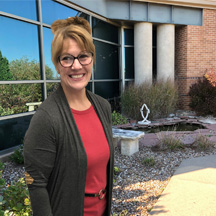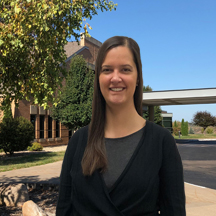
Forgiveness–Choosing to Remember
I have been in and around church my entire life. As I have gotten older, there are certain “church sayings” that I have had to check for their truthfulness. One such phrase is “forgive and forget,” and another is “you need to learn to forgive yourself.”
The phrase “forgive and forget” is not found in Scripture. Yes, yes, the Bible does say such things as, “For I will be merciful toward their iniquities, and I will remember their sins no more.” (Hebrews 8:12), “I, I am he who blots out your transgressions for my own sake, and I will not remember your sins.” (Isaiah 43:25), and “Repent therefore, and turn again, that your sins may be blotted out,” (Acts 3:19), but let’s be realistic. One, our all-knowing Father God cannot forget, and two, we can’t just automatically forget something. Try not to think of a purple gorilla riding a unicycle. How’s that working for you? Sure, there are those times when God takes memories of heartache and pain away. So it isn’t that forgetting isn’t possible, but Scripture simply does not couple forgiving and forgetting.
Let’s look at thing from a different perspective. Let’s try remembering. In 2 Corinthians 7:10, Paul comments on the pain and sorrow. He writes, “For godly grief produces a repentance that leads to salvation without regret.” A ‘godly grief’ looks something like 1 John 1:9, “But if we confess our sins to him, he is faithful and just to forgive us our sins and to cleanse us from all wickedness.” This leads to salvation! This is good news, otherwise known as the Gospel! Christ’s atoning work on the cross perfectly covers all of your past, current, and future sins. God will never again allow the knowledge of these sins to play a part in relating to you. Christ reconciles you to God the Father, who then sees you as washed us “white as snow” (Isaiah 1:18) through Christ’s shed blood. Because of Christ’s atoning work on the cross, any pain you have dealt with in the past, are dealing with in the present, or will deal with in the future is perfectly cared for by Jesus. God perfectly models what forgiveness entails through Christ. You are called to walk in the power that is extended to you through his mercy. To let the pain from a past hurt or offense keep you from walking in healing is to misunderstand the all-encompassing work of the gospel to save, sanctify, and glorify us. Humans are not able to do this perfectly like God does, and this is why regular reminders of the gospel are so important.
This brings us to the second ‘church phrase,’ “You need to learn to forgive yourself.” To get straight to the point, never does the Bible talk about the idea of “forgiving yourself.” We are told to forgive others when they trespass against us and seek forgiveness (Matthew 6:12). When we ask for God’s forgiveness based upon Christ having already paid for our sins and our having trusted in Him as Savior and Lord, He forgives us. However, even though we are released from the bondage to sin (as spoken of in Romans chapters 6-8), we can still choose to wallow in it and act as though we are not freed from it. Likewise, with guilty feelings we can accept the fact that we are forgiven in Christ, or we can believe the devil’s lie that we are still guilty and should therefore feel guilty. So although, the Bible does not directly command us to forgive ourselves, it does tell us to believe. Think about it for a moment. Paul tells us plainly that there is “now no condemnation for those who are in Christ Jesus” (Romans 8:1). He also says that “if anyone is in Christ, he is a new creation; old things have passed away; behold, all things have become new” (2 Corinthians 5:17). If you continue to condemn yourself after receiving the grace and forgiveness of Christ, isn’t there a sense in which you are denying the faith and crucifying the Son of God afresh (Hebrews 6:6)? When our former sins come to mind, we can choose to dwell upon them (with the resulting guilty feelings), or we can choose to remember and fill our minds with thoughts of the awesome God who forgave us and thank and praise Him for it (Philippians 4:8). Remembering our sins is only beneficial when it reminds us of the extent of God’s forgiveness and makes it easier for us to forgive others (Matthew 18:21-35).
In both cases, forgiveness is a choice that takes courage and strength, and it gives us the opportunity to become an overcomer rather than remaining a victim of our own scorn. Forgiveness is an opportunity to apply Gospel truths. You have been forgiven so you are able to forgive (Col. 3:13, 2 Cor. 5:18-19), and forgiveness is not just a great gift to bestow on others; it’s also something that allows us to be free. We can forgive because of who we are in Christ.
2 Corinthians 5:17 says it best, “Therefore, if anyone is in Christ, he is a new creation. The old has passed away; behold, the new has come.”
Gary Sager
Ambassador of Care


Did you enjoy this article? Let us know.




 Many Sunday mornings I’ve had to take a deep breath (or three) and offer myself forgiveness that my children are not perfectly behaved during church. This forgiveness did not originate with me though. I’ve learned to be kind to myself through the forgiveness and love I’ve received from other church-goers. (And they’ve learned that forgiveness from Jesus who offered it freely to all of us.) The elderly woman who comments, “I love watching your kids dance and be happy to be at church.” The parent who is one step ahead of me in parenting, “I miss my kids crawling under the chairs. Man, I never would have said that 5 years ago.” The church staff member who catches my eye, nods, and chases after my child as he runs away for the third (yes, third) time. That simple nod told me to sit down, listen to the sermon, and know that my child was being cared for. The couple who purposely finds me after the service to offer a kind, “You’re doing a great job! You’re teaching your kids to worship corporately and that’s a huge gift.” So, even when some Sundays I don’t feel like it, I remember to offer myself forgiveness.
Many Sunday mornings I’ve had to take a deep breath (or three) and offer myself forgiveness that my children are not perfectly behaved during church. This forgiveness did not originate with me though. I’ve learned to be kind to myself through the forgiveness and love I’ve received from other church-goers. (And they’ve learned that forgiveness from Jesus who offered it freely to all of us.) The elderly woman who comments, “I love watching your kids dance and be happy to be at church.” The parent who is one step ahead of me in parenting, “I miss my kids crawling under the chairs. Man, I never would have said that 5 years ago.” The church staff member who catches my eye, nods, and chases after my child as he runs away for the third (yes, third) time. That simple nod told me to sit down, listen to the sermon, and know that my child was being cared for. The couple who purposely finds me after the service to offer a kind, “You’re doing a great job! You’re teaching your kids to worship corporately and that’s a huge gift.” So, even when some Sundays I don’t feel like it, I remember to offer myself forgiveness.





